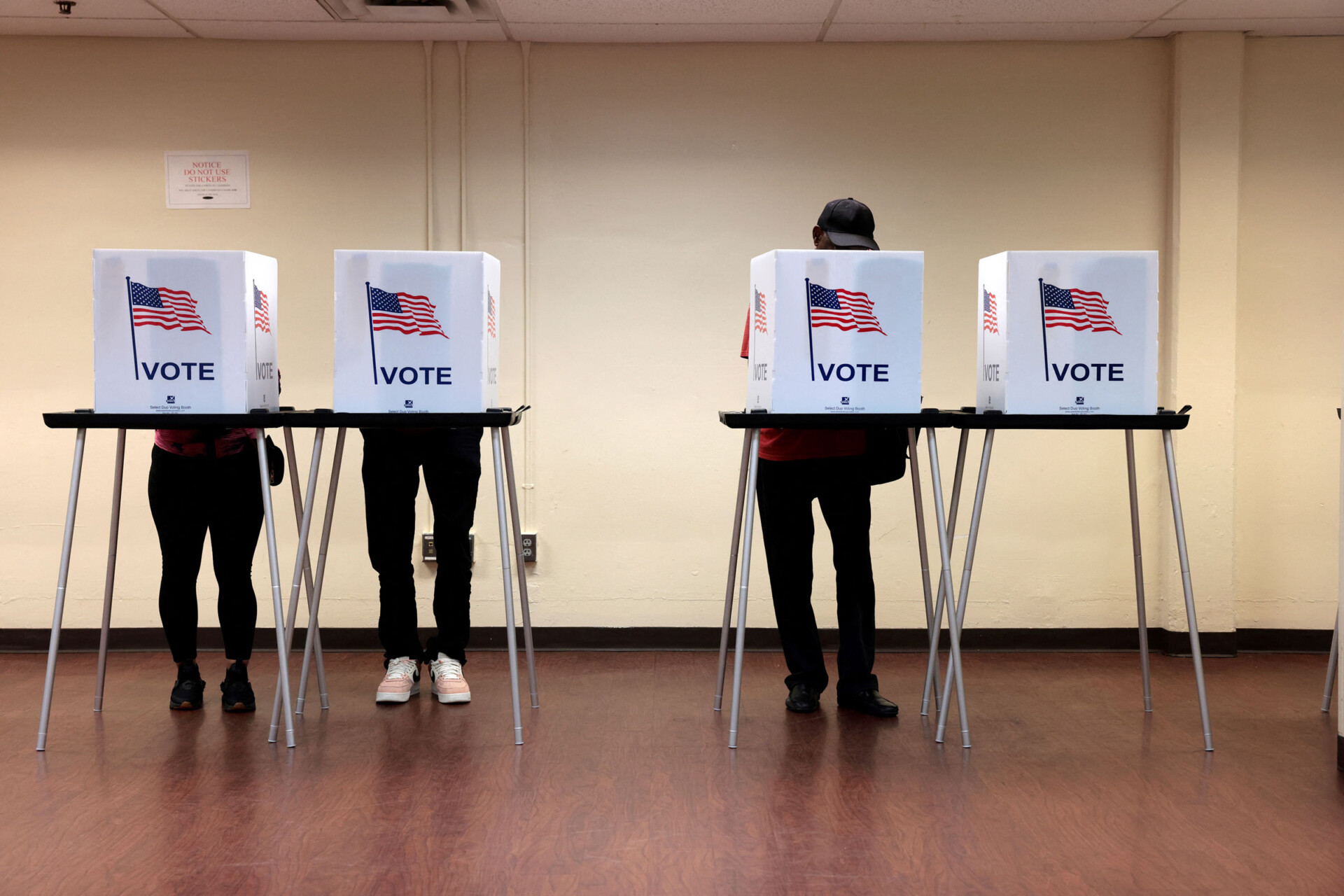Hosted by Danny Postel
Featuring John Sides and Sheri Berman
Produced by Finbar Anderson
Research by Santiago Ospina Celis
Listen to and follow The Lede
Apple Podcasts | Spotify | Podbean
The 2024 American presidential election is set to be historic. The country’s voters will elect either their first female president in Kamala Harris or, in the words of Harris and her fellow Democrats, a man with dangerously fascist tendencies who threatens American democracy itself in Donald Trump. Yet John Sides, a professor of political science at Vanderbilt University, tells New Lines’ Danny Postel that the debate over whether or not Trump threatens the future of America’s democratic institutions is unlikely to decisively swing the race.
“You can move the needle with positive messages about yourself more than with negative attacks on Trump,” Sides tells Postel on The Lede. “You would move the needle more with kitchen table issues like healthcare than you would with a Joe Biden, soul of our nation message focused on Trump’s threat to democracy.”
“If you live in a democracy, you must put that democratic system above your particular party.”

Democrats have not helped themselves with a chaotically run campaign, including a last minute change to their nominee, Sides argues. “You almost don’t even need to talk about Trump to get some sense of what’s happened.”
Trump, for his part, has garnered massive support through messaging that resonates with huge numbers of voters who feel aggrieved about their current lot. Following Trump’s successful campaign in 2016, Sides and his colleagues identified that economic anxiety gained in political potency when it was refracted through the lens of identity, he tells Postel. “It’s not, ‘Am I afraid of losing my job?’ It’s, ‘Do I think that white people are losing out on jobs because they have to give them to racial minorities?’ And we found that the latter was a much more actionable sentiment when it came to people’s political choices in that election.”
The fact that many voters are willing to look past Trump’s apparent threat to American democracy “reflects some weaknesses, not just in our citizenry and in the polarized nature of that citizenry, but also in our democratic institutions,” suggests Sheri Berman, professor of political science at Columbia University.
Nevertheless, she says, “The Democratic Party is not offering people what they want … and this has created an opportunity for Republicans to manipulate what political scientists like to call the ‘representation gap’ to their own benefit.”
Drawing on her expertise studying far-right movements in Europe, she tells Postel, “This interaction between difficult economic times and large-scale immigration and sociocultural change can create a very toxic mix for democracy. It’s much more difficult to be generous towards an ‘other’ when you feel like you or your community is struggling.”
Echoing Sides, Berman thinks simply labeling Trump as a “fascist” will not bear electoral fruit. Democrats, she says, should focus “more specifically on what Trump says he’s going to do. He wants to use the military against citizens who don’t agree with him. He wants to change the way our federal bureaucracy is structured. … Make people understand the nature of the threat.”
Given how close the election is forecast to be, Berman believes Trump is already preparing an attack on the electoral process itself. “He is going to claim that the other side, which he has been demonizing and vilifying, somehow once again stole the election.”


